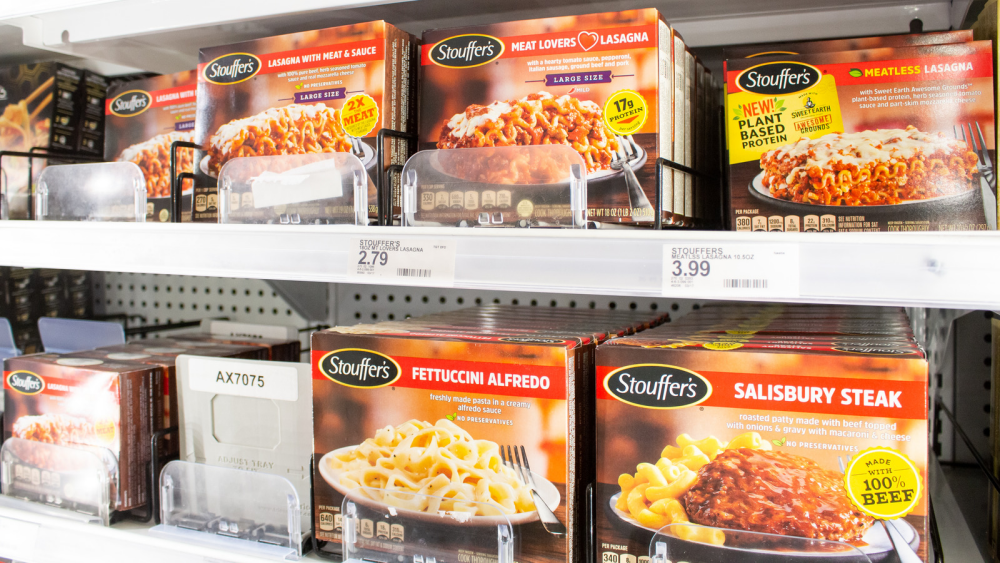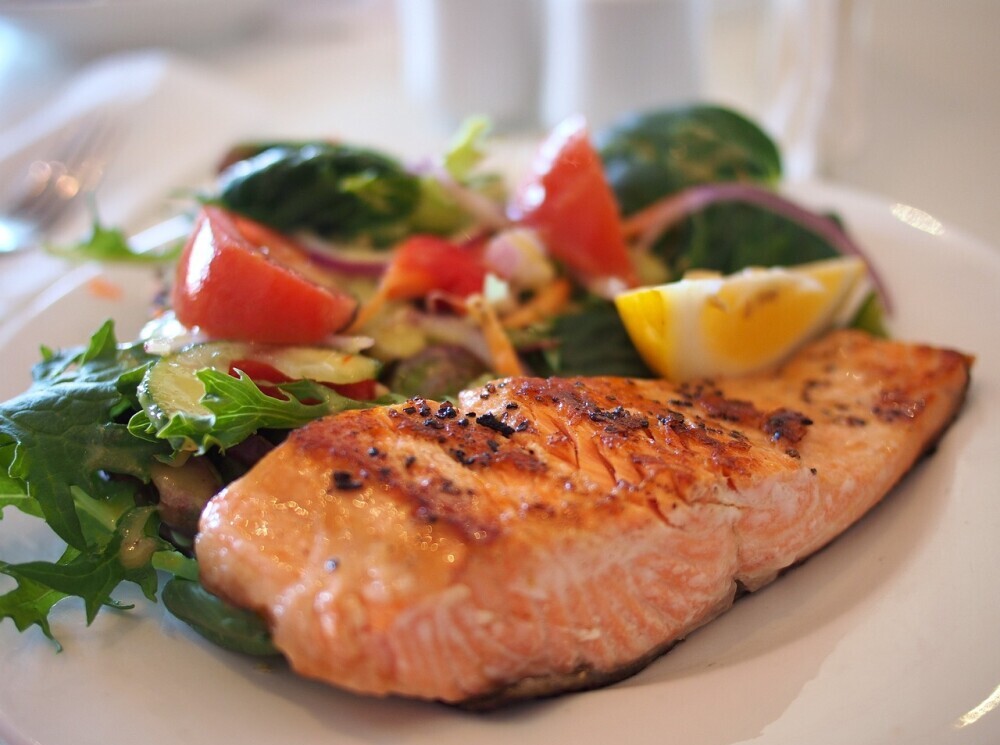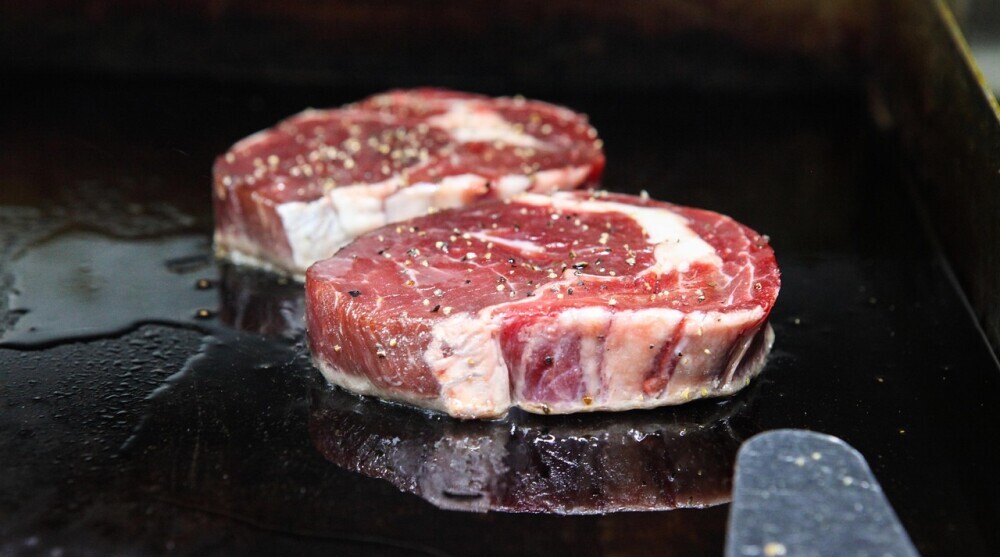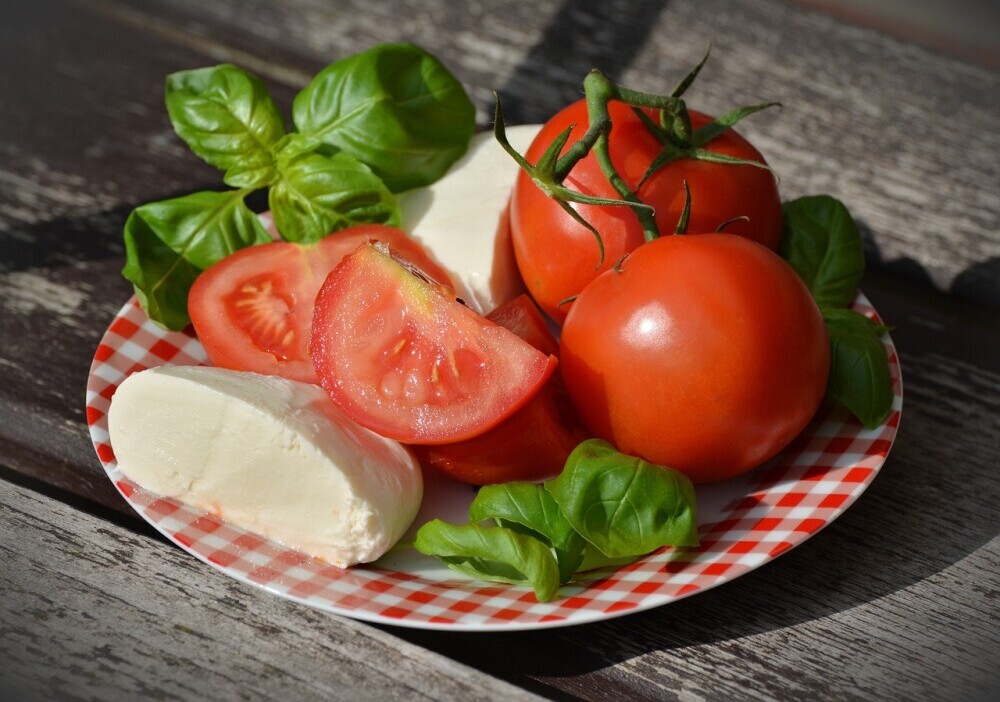Knee pain is no joke, especially for seniors. It can seriously mess with your daily life, making it hard to move around and stay active. But did you know the food you eat can play a big role in how your knees feel? It’s true! Your diet can either help keep that knee pain in check or make it downright unbearable.
Certain foods can cause inflammation, which is a major contributor to knee pain. Think of inflammation like a fire inside your body. Sure, a little bit is normal and part of the healing process, but too much can cause some serious damage. Eating the wrong kinds of foods is like throwing gas on that fire.
So, what’s the deal? Why does food matter so much? Well, your body needs the right nutrients to maintain healthy joints. If you’re chowing down on stuff that’s high in sugar, trans fats, and other nasty ingredients, you’re not doing your knees any favors. On the flip side, filling up on the right nutrients can help reduce inflammation and support joint health.
For seniors, staying mindful of what goes on your plate is super important. With age, your body doesn’t bounce back as easily, and joint issues can become more common. But it’s not all doom and gloom—making a few tweaks to your diet can have a significant impact on your knee health. It’s all about making informed choices.
In this guide, we’re diving into the world of knee-friendly eating. We’ll go over which foods to avoid, what you should be eating instead, and even bust some myths along the way. By the end, you’ll have a good handle on how to keep your knees happy and healthy just through your diet!
Foods to Avoid for Reducing Knee Pain
Okay, let’s talk about the foods that are like kryptonite for your knees. If you’ve got knee pain, you’ll wanna steer clear of these bad boys. First on the list? Processed foods. We’re talking about anything overly processed like frozen dinners, fast food, and even sugary cereals. Those tend to be packed with chemicals and trans fats that can crank up the inflammation, making your knees feel worse.
Sugary treats are another culprit. Candy, soda, and even those supposedly ‘healthy’ granola bars often have sky-high sugar levels. That sugar can spike inflammation, which is the last thing you need when your knees are already screaming. Plus, high sugar intake can lead to weight gain, adding extra pressure on your knees.
You might also wanna think twice about munching on salty snacks. Chips, pretzels, and other salty foods can cause your body to retain water, leading to swelling and puffiness in your joints. It’s like adding extra weight to your already strained knees.
Now onto trans fats. These unhealthy fats are found in packaged goodies like cakes, cookies, and margarine. They’re not just bad for your heart; they also mess with your joints by causing inflammation. Next time you see ‘partially hydrogenated oils’ in the ingredients list, it’s a good idea to put it back on the shelf.
Lastly, be wary of artificial additives and preservatives. Things like MSG, artificial coloring, and certain preservatives can trigger inflammation in some people. It’s tough, but cutting these out can make a real difference. Always check labels and try to stick to whole, unprocessed foods whenever you can.
Nourishing Foods for Knee Repair and Health
All right, enough about what to avoid. Let’s get into the good stuff—foods that can actually help repair and maintain healthy knees. First up? Omega-3 fatty acids. These are found in fish like salmon, mackerel, and sardines. Omega-3s are awesome because they’re natural anti-inflammatories, helping to keep those knee aches at bay.
Another big win for knee health is fruits and veggies. They’re packed with antioxidants that fight inflammation and support overall joint health. Think berries, apples, and oranges for fruits, and leafy greens like spinach, kale, and broccoli for veggies.
Whole grains should also have a spot on your plate. Opt for brown rice, quinoa, and oats instead of white bread and pasta. Whole grains are less likely to spike your blood sugar, keeping inflammation levels lower.
Don’t forget about lean proteins. Chicken, turkey, and tofu can provide the protein your body needs to repair tissue without the added fats that can worsen inflammation. Nuts and seeds are also good sources of protein and healthy fats that benefit your joints.
Avocados are another go-to. They’re packed with healthy fats and vitamin E, which both help reduce inflammation. Not to mention, they taste great on just about anything!
Finally, hydration is key. Drink plenty of water to keep your tissues hydrated and functioning properly. Staying hydrated helps your body flush out toxins that could add to inflammation and joint pain.
Top Foods That Trigger Arthritis and Joint Issues
Some foods are infamous for triggering arthritis symptoms. Number one on the list? Red meat. Beef, lamb, and pork can cause inflammation and arthritis flare-ups. They contain saturated fats that might worsen joint pain.
Dairy products can also be tricky. Cheese, milk, and butter might be tasty, but they can cause inflammation for some people. If you notice your knees aching after a dairy binge, consider cutting back.
Refined carbohydrates are another culprit. White bread, pastries, and many snack foods can spike your blood sugar and increase inflammation. Opt for whole grains instead to keep those knees happy.
Gluten is a potential issue too. Some people find that gluten, found in wheat, barley, and rye, makes their arthritis worse. If you suspect gluten is a problem, try eliminating it and observe the difference.
Alcohol, while relaxing, can be harsh on your joints. It leads to increased inflammation, making knee pain worse. Limiting or avoiding alcohol can help keep your knees in better shape.
Fried foods are another no-go. French fries, fried chicken, and similar foods contain unhealthy fats that trigger inflammation. Swapping these for baked or grilled options can make a big difference.
Sugary foods, again, aren’t friends with your knees. Sweets, candies, and sugary drinks can lead to spikes in inflammation, exacerbating arthritis symptoms.
Processed foods, full of preservatives and additives, often trigger joint pain too. Stick to natural, whole foods whenever you can.
High-salt foods like potato chips and processed meats can lead to water retention, causing swollen joints. Cutting back on salt can help reduce inflammation.
Lastly, avoid artificial additives. Substances like MSG and artificial sweeteners can trigger inflammation, leading to more joint pain. Reading labels and avoiding these can be beneficial.
Vegetables to Avoid for Managing Arthritis Symptoms
When it comes to vegetables and arthritis, not all veggies are created equal. Some can actually exacerbate your symptoms. Nightshade vegetables top the list of ones to be cautious about. This category includes tomatoes, potatoes, eggplants, and peppers. They contain a chemical called solanine, which some studies suggest could aggravate arthritis pain in certain individuals. If you’re dealing with knee pain, it might be worth limiting your intake of these veggies to see if there’s any improvement.
Spinach, while generally healthy, contains high amounts of oxalates, which could contribute to joint pain and inflammation. It doesn’t affect everyone the same way, but if you’re experiencing increased discomfort, it might be worth reducing your spinach consumption to gauge any changes in your symptoms.
Mushrooms might surprise you on this list, but some people find they worsen arthritis symptoms. They have high purine levels, which can convert to uric acid in the body, potentially triggering joint pain.
Corn is another one to watch. Often found in processed foods, corn can cause inflammation due to its high sugar content. Even fresh, it might be worth monitoring its effects on your knees.
Beet greens are packed with nutrients, but they also contain oxalates, similar to spinach. While they can be part of a healthy diet, those with arthritis might want to be mindful of how much they consume.
Remember, everyone’s body responds differently to foods. What bothers one person might not affect someone else. It’s all about understanding your own body and making mindful choices to keep those knees in good shape.
** Our website contains affiliate links. This means if you click and make a purchase, we may receive a small commission. Don’t worry, there’s no extra cost to you. It’s a simple way you can support our mission to bring you quality content.
FAQ:
1. What food is not good for knee pain?
- Processed Sugars: High-sugar foods can lead to increased inflammation in the joints, aggravating knee pain.
- Refined Carbohydrates: White bread, pastries, and other processed carbs can spike blood sugar levels and increase inflammation.
- Trans Fats and Fried Foods: These foods promote inflammation and can worsen knee pain by contributing to joint damage.
- Excessive Salt: High sodium intake can lead to water retention, which may put extra pressure on the joints and contribute to knee pain.
2. What are the 5 worst foods for joint pain?
- 1. Processed Sugars: Foods like candy, soda, and desserts can trigger inflammation and exacerbate joint pain.
- 2. Refined Carbohydrates: White flour, pasta, and sugary cereals spike insulin levels, promoting inflammation in the body.
- 3. Trans Fats: Found in many fried and fast foods, trans fats can increase inflammation.
- 4. Red Meat: High in saturated fats and inflammatory compounds like advanced glycation end products (AGEs), red meat can worsen joint pain.
- 5. Alcohol: Excessive alcohol intake can increase inflammation and lead to joint pain, especially in those with arthritis.
3. What are the 10 foods that trigger arthritis?
- 1. Sugar: Increases inflammation and joint discomfort.
- 2. Red Meat: Contains saturated fats and AGEs, both of which can promote inflammation.
- 3. Processed Meats: Bacon, sausages, and deli meats are high in preservatives and trans fats that aggravate arthritis symptoms.
- 4. Refined Grains: White bread, white rice, and pasta raise blood sugar and increase inflammation.
- 5. Dairy Products: Some individuals with arthritis may find that dairy products, particularly those high in fat, can increase joint pain.
- 6. Fried Foods: Trans fats in fried foods increase inflammation in the body.
- 7. Alcohol: Excessive drinking can trigger arthritis flare-ups and worsen inflammation.
- 8. Gluten: Found in wheat, barley, and rye, gluten can exacerbate arthritis symptoms in sensitive individuals.
- 9. High-Sodium Foods: Packaged and processed foods high in salt can increase water retention and joint stress.
- 10. Omega-6 Fatty Acids: Found in corn oil, sunflower oil, and processed snacks, omega-6 fatty acids promote inflammation.
4. What are 5 vegetables to avoid for arthritis?
These vegetables are from the nightshade family, which some people with arthritis believe may trigger symptoms, although scientific evidence is limited:
- 1. Tomatoes
- 2. Potatoes
- 3. Eggplants
- 4. Peppers (bell peppers, chili peppers)
- 5. Goji Berries Some arthritis patients find that avoiding nightshade vegetables helps reduce inflammation, but this effect may not apply to everyone.
5. Are eggs bad for arthritis?
- Eggs can be problematic for some individuals with arthritis due to the arachidonic acid found in the yolk, which is linked to inflammation. However, eggs also provide beneficial nutrients like protein and vitamin D, which support bone health.
- Moderation is key: If eggs do not trigger your symptoms, they can be included in a balanced diet. But if you notice worsening joint pain after eating eggs, it may be worth limiting them.
6. What are the 10 worst foods for inflammation?
- 1. Sugar: Processed sugars in sodas, desserts, and candy can cause spikes in inflammatory markers.
- 2. Refined Carbohydrates: White bread, pasta, and other refined grains lead to increased blood sugar and inflammation.
- 3. Trans Fats: Found in margarine, fried foods, and packaged snacks, these fats are highly inflammatory.
- 4. Processed Meats: Hot dogs, bacon, and sausages contain preservatives and trans fats that increase inflammation.
- 5. Red Meat: Rich in saturated fats and inflammatory compounds like AGEs, red meat contributes to joint inflammation.
- 6. Alcohol: Excessive alcohol consumption promotes systemic inflammation and aggravates joint pain.
- 7. Dairy Products: High-fat dairy can trigger inflammatory responses in some people.
- 8. Omega-6 Fatty Acids: Found in vegetable oils like corn and sunflower oil, omega-6 can promote inflammation when consumed in excess.
- 9. Artificial Additives: Preservatives, food colorings, and flavor enhancers may trigger inflammation in sensitive individuals.
- 10. Fried Foods: The oils and fats used in frying increase inflammatory markers in the body.





What a great article!! I enjoyed reading it. If you’re dealing with knee pain, watching what you eat can really help! This article breaks down which foods to avoid, like processed snacks and sugary treats, because they can cause inflammation. Swapping them out for healthier options, like leafy greens or lean proteins, could make a big difference in how your knees feel. Anyone else try cutting certain foods to help with joint pain? I’d love to hear what worked for you!
Hi Randi,
Thank you so much for your thoughtful comment!
I’m really glad you enjoyed the article and found the tips on diet helpful. You’re absolutely right—our food choices can play a huge role in managing knee pain and inflammation.
Swapping out processed snacks for healthier options like leafy greens and lean proteins can make a real difference. It’s great that you’re already thinking about these changes!
I’d also love to hear from others who have tried adjusting their diet to manage joint pain—hopefully, we can all learn from each other’s experiences.
This article on foods to avoid for better knee health is incredibly useful! I appreciate the clear and practical advice tailored specifically for seniors. The explanations of how certain foods impact joint health are enlightening and serve as a great reminder to prioritize our diets. Thank you for sharing such valuable insights that can help improve quality of life and mobility!
Thank you for your thoughtful comment! I’m so glad to hear that you found the article on foods to avoid for better knee health useful, especially when it comes to maintaining joint health as we age.
It’s amazing how much of an impact our diets can have on our mobility and overall well-being. Prioritizing the right foods can really make a difference in managing joint pain and maintaining an active lifestyle.
Thank you again for your kind words, and I’m happy the information is helpful in improving quality of life and mobility!